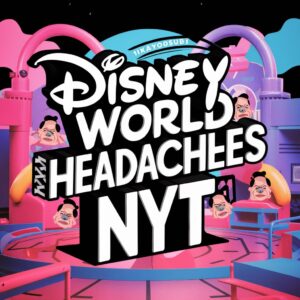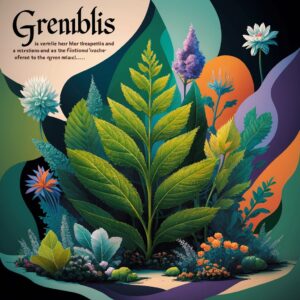
All Tomorrow’s Parties Meaning: An In-Depth Analysis
Contents
Introduction
In this article, we will explore the meaning of “All Tomorrow’s Parties,” a song written by Lou Reed and performed by The Velvet Underground. This song delves into the world of Andy Warhol and his eclectic entourage at The Factory. Our analysis will provide insights into the song’s themes, historical context, and cultural impact, offering a comprehensive understanding that goes beyond existing interpretations.
The Velvet Underground and “All Tomorrow’s Parties Meaning”
Origins and Inspiration
Lou Reed, the lead songwriter for The Velvet Underground, penned “All Tomorrow’s Parties” in the mid-1960s. The song was heavily influenced by Andy Warhol, who was not only the band’s manager but also a central figure in the New York City art scene. Warhol’s Factory, a studio and gathering place for artists, musicians, and socialites, provided the backdrop for many of Reed’s songs, including this one.
Warhol’s Factory
Warhol’s Factory was a melting pot of creativity and avant-garde art. It attracted a wide range of personalities, from musicians and artists to socialites and underground filmmakers. The Factory was known for its eclectic parties, where the lines between art and life were often blurred. This unique environment inspired Reed to write “All Tomorrow’s Parties,” capturing the essence of the people and events that characterized the Factory scene.
Musical Composition
“All Tomorrow’s Parties” features a haunting and repetitive piano riff played by John Cale, combined with Nico’s deep, resonant vocals. The minimalist instrumentation creates an atmosphere that is both melancholic and reflective, perfectly complementing the song’s themes of fleeting glamour and existential ennui.
Nico’s Vocal Contribution
Nico, the German singer who collaborated with The Velvet Underground, brought a distinct vocal quality to the song. Her voice, often described as somber and ethereal, added a layer of depth to the lyrics, emphasizing the themes of loss and transience.
Themes and Interpretations
The Ephemeral Nature of Fame
One of the central themes of “All Tomorrow’s Parties” is the fleeting nature of fame and beauty. The song’s lyrics describe a woman who dresses up for parties, hoping to capture the attention and admiration of those around her. However, this attention is temporary, and she is left to ponder the emptiness that follows.
Lyrics Analysis
The lyrics, “And what costume shall the poor girl wear / To all tomorrow’s parties,” highlight the performative aspect of social interactions at the Factory. The “costume” represents the façade that individuals put on to fit into the glamorous world of art and fame, masking their true selves.
Social Commentary
Reed’s lyrics also serve as a social commentary on the superficiality of the art scene. The song critiques the obsession with appearances and the transient nature of social status within Warhol’s circle. The repetitive structure of the song reinforces the monotonous cycle of seeking and losing approval.
Existential Undertones
Beyond its critique of superficiality, “All Tomorrow’s Parties” delves into existential themes. The repeated references to “tomorrow’s parties” suggest a never-ending quest for meaning and fulfillment. The protagonist’s continuous search for validation through parties and social gatherings reflects a deeper existential void.
Historical Context
The 1960s Art Scene
The 1960s was a period of significant cultural and social change. The art scene, particularly in New York City, was marked by experimentation and a break from traditional forms. Andy Warhol and his Factory were at the forefront of this movement, embracing new mediums and blurring the lines between high and low culture.
Pop Art Movement
Warhol’s work in pop art challenged conventional notions of art by incorporating elements of consumer culture and mass media. “All Tomorrow’s Parties” captures the spirit of this era, reflecting the contradictions and complexities of the pop art movement.
Influence of Andy Warhol
Warhol’s influence on The Velvet Underground extended beyond his role as their manager. He provided them with a platform to experiment and express their unique artistic vision. “All Tomorrow’s Parties” is a testament to Warhol’s impact, as it encapsulates the atmosphere of the Factory and the themes that were central to his work.
Cultural Impact
Legacy of “All Tomorrow’s Parties”
“All Tomorrow’s Parties” has left a lasting impact on music and culture. The song’s melancholic tone and introspective lyrics have resonated with audiences for decades. It has been covered by numerous artists, each bringing their own interpretation to Reed’s poignant lyrics.
Covers and Tributes
Artists such as Nick Cave and Japan have covered “All Tomorrow’s Parties,” highlighting its enduring appeal. These covers often emphasize different aspects of the song, from its haunting melody to its lyrical depth.
Influence on Contemporary Music
The Velvet Underground’s innovative approach to music has influenced countless artists across various genres. “All Tomorrow’s Parties” exemplifies their ability to blend avant-garde sensibilities with accessible melodies, a quality that has inspired musicians from punk to alternative rock.
Personal Insights and Analyses
Lou Reed’s Perspective
Lou Reed’s songwriting often drew from his personal experiences and observations. In “All Tomorrow’s Parties,” Reed captures the dichotomy of glamour and despair that characterized his interactions with the people at the Factory. His ability to convey complex emotions through simple, repetitive lyrics is a hallmark of his style.
Autobiographical Elements
While “All Tomorrow’s Parties” is not explicitly autobiographical, it reflects Reed’s understanding of the human condition. The song’s protagonist, with her endless search for validation, mirrors Reed’s own struggles with identity and acceptance.
The Song’s Relevance Today
“All Tomorrow’s Parties” remains relevant today, as its themes of superficiality, existential longing, and the quest for meaning continue to resonate. In an era dominated by social media and the constant pursuit of validation, the song’s message is more poignant than ever.
Modern Interpretations
Contemporary listeners can find parallels between the Factory scene and today’s digital culture. The song serves as a reminder of the dangers of losing oneself in the pursuit of external approval, urging us to seek deeper, more meaningful connections.
FAQs about All Tomorrow’s Parties Meaning
What is the meaning of “All Tomorrow’s Parties”?
“All Tomorrow’s Parties” is a song by The Velvet Underground that explores themes of fleeting fame, superficiality, and existential longing. It was inspired by the people and events at Andy Warhol’s Factory, a hub of artistic activity in the 1960s.
Who wrote “All Tomorrow’s Parties”?
The song was written by Lou Reed, the lead songwriter for The Velvet Underground. It features vocals by Nico and a distinctive piano riff by John Cale.
What is the significance of the Factory in the song?
The Factory, run by Andy Warhol, was a gathering place for artists, musicians, and socialites. It served as the backdrop for “All Tomorrow’s Parties,” influencing the song’s themes and providing inspiration for its lyrics.
Why is “All Tomorrow’s Parties Meaning” considered a classic?
The song’s haunting melody, introspective lyrics, and cultural relevance have contributed to its status as a classic. Its influence on subsequent generations of musicians and its ability to resonate with listeners across different eras underscore its enduring appeal.
How does “All Tomorrow’s Parties Meanings” relate to contemporary culture?
The song’s themes of superficiality and the search for meaning are relevant in today’s digital age. It serves as a critique of the constant pursuit of validation through social media and other modern platforms, urging listeners to seek deeper connections.
Conclusion: All Tomorrow’s Parties Meaning
“All Tomorrow’s Parties Meaning” is a multifaceted song that captures the essence of the 1960s art scene while addressing universal themes of fame, superficiality, and existential longing. Written by Lou Reed and performed by The Velvet Underground, the song remains a poignant reflection on the human condition.
Its enduring relevance and cultural impact continue to inspire and resonate with audiences today. Through this comprehensive analysis, we have delved into the song’s origins, themes, and significance, providing insights that go beyond the usual interpretations and offering a deeper understanding of its meaning.












































Post Comment